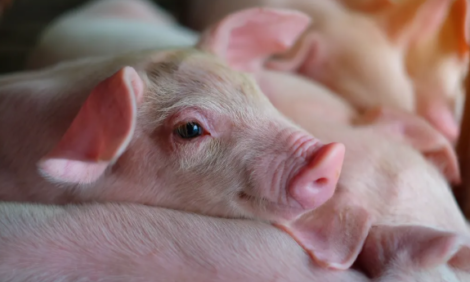



The Global Picture: The Forces That Impact On Swine Production
By Knud Buhl, Danske Slagterier - as presented at the 2006 London Swine Conference.
This presentation will take a look at the forces that have an impact on swine production with special focus on how the World Trade Organization (WTO) system and the present round of WTO negotiations (the Doha round) is expected to influence the general framework for international trade. As the worlds biggest exporter of pig meat the presentation will also look at the consequences for the Danish pig meat sector.
WORLD PIG MEAT MARKET
Before going into the discussion about the consequences of the present WTO negotiations there will be an overview of the world pig meat market and the emerging trends for the world trade in pig meat. The development on the world pig meat market shows that the European Union (EU) pig meat production will remain stable but EU’s share of global meat production will decrease in the future compared to other players on the world market. Furthermore the increased global competition against EU meat production in general will be intensified. Another important trend for the pig meat market is that raw materials will be sourced globally but processed locally.
WTO – CONSEQUENCES OF THE DOHA ROUND
The WTO is setting the rules for international trade and for the moment the WTO members are negotiating a new framework for international trade under the so-called Doha round, which began in 2001 in Doha, Qutar. Because the negotiations have not been finalized yet it is difficult to give a clear overview of the consequences for international trade and production. However the negotiations are focusing on 3 pillars, market access, domestic support and export competition.
From the Hong Kong meeting in December 2005 it seems that the main results on agriculture will be a reduction of import duties, reduction of domestic support and export subsidies. Assuming this will be the result and that the Doha round will be concluded in a well-balanced way the presentation will highlight the consequences from this possible outcome.
A reduction of duties is a double-edged sword. On one side, we will benefit from improved market access to our export markets. On the other, the European producers will be exposed to more competition, due to the reduction of import duties. Secondly the consequences of a reduction of domestic support will be highlighted, mainly focusing on the consequence for the competitive position. Lastly the expected consequences of a reduction of export subsidies will be discussed as to whether it will influence export performance of the main exporters of pig meat.
The presentation will also highlight the dilemma that the Doha round will inevitably result in further reductions of traditional trade barriers. But at the same time that conventional measures to restrict agricultural imports are reduced new barriers to agricultural trade seem to be rising – barriers related to the Sanitary and Phytosanitary (SPS) area. Most of the potential future trade problems will be in this area and ironically the present Doha round does not involve the SPS area.
One of the main conclusions will be that we are not just moving towards more open markets, we are also moving towards less transparent and more complex framework for trade.
Further Information
To view the summary page and the other articles in this series, click here
June 2006








